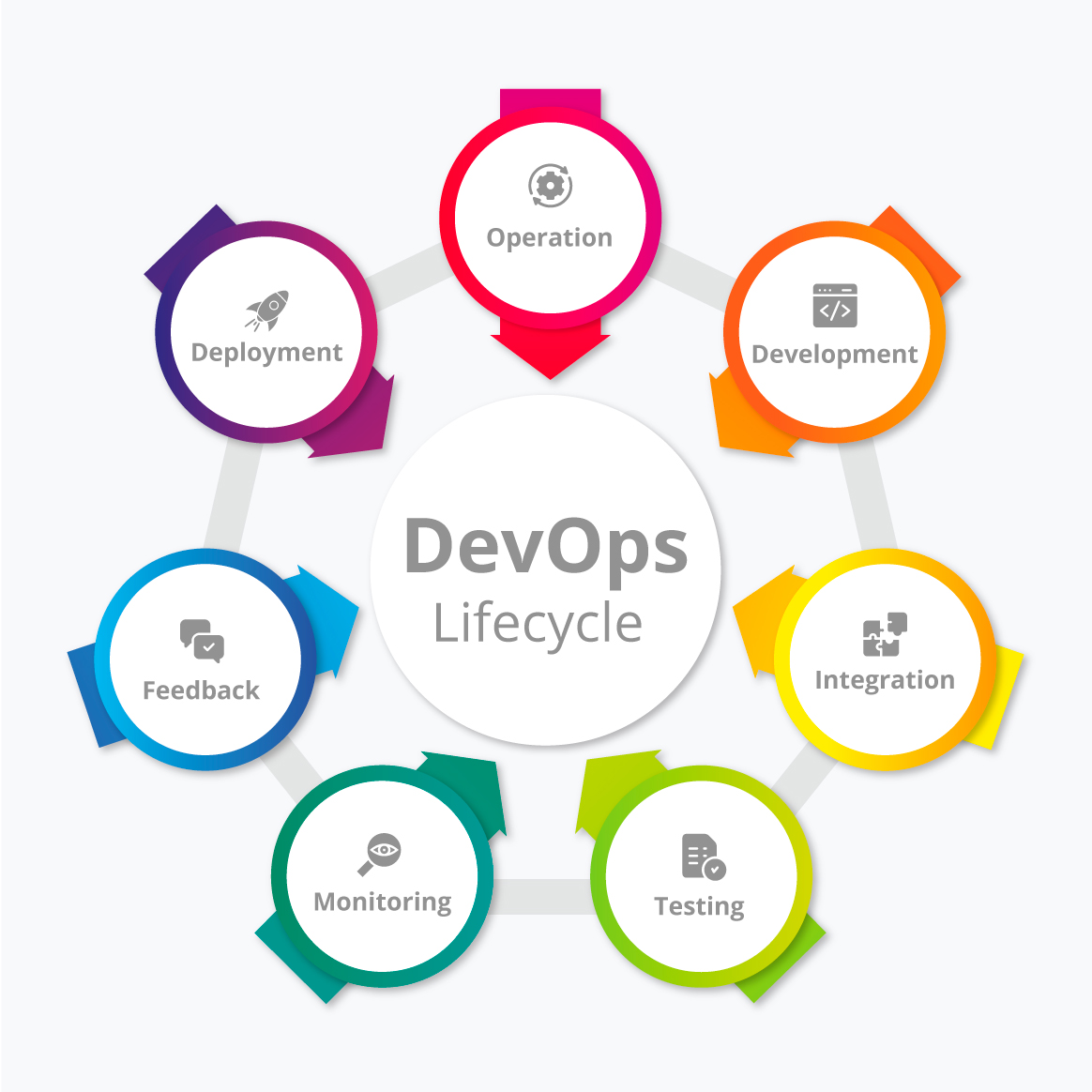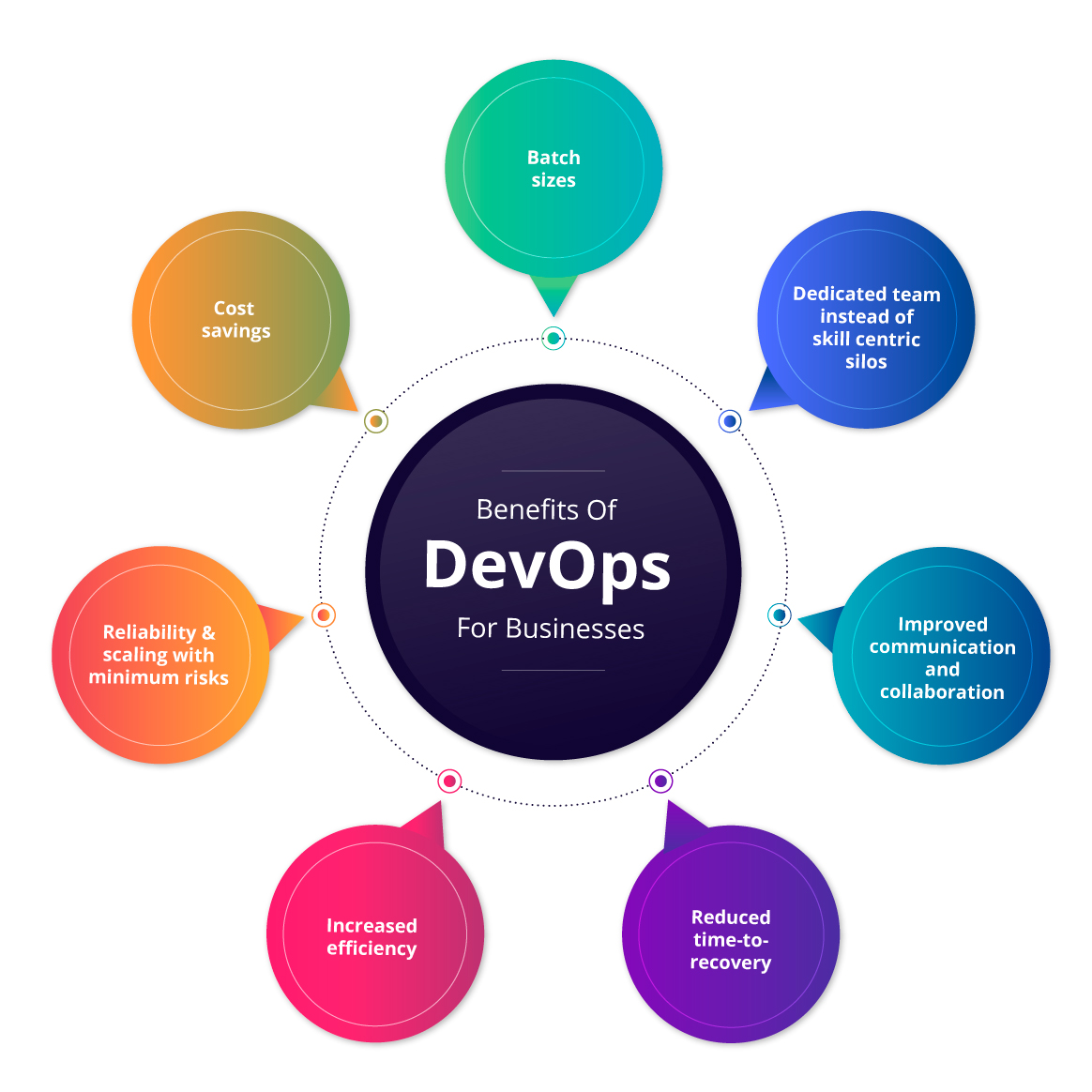
Here’s what you will learn:
Startups are continuously looking for novel approaches to acquire a competitive advantage and increase their efficiency in the fast-paced business environment of today. DevOps is one such strategy that has seen tremendous growth in popularity. This blog will provide a thorough overview of DevOps for startups that is geared especially for new companies.
Table of Contents
Recognizing DevOps
A software development methodology called DevOps places a strong emphasis on communication and interaction between development teams and operations teams. It attempts to speed up the supply of software products, improve collaboration, and automate procedures. Faster, more dependable, and more frequent software releases are made possible by DevOps by dismantling silos and promoting a culture of shared accountability.
DevOps’ Importance for Startup Businesses
Time-to-market and effective resource management are key success elements in the fiercely competitive startup industry. By expediting the development process, lowering mistakes, and assuring quicker deployment of new features, DevOps gives companies a competitive edge. It makes it possible for entrepreneurs to iterate rapidly, react to market needs, and provide consumers with value more efficiently.
Key DevOps Principles
Several fundamental ideas underpin DevOps:
Communication and cooperation
Open dialogue and cooperation between development, operations, and other stakeholders are stressed in DevOps. Achieving common knowledge, goal alignment, and rapid problem-solving all depend on effective communication.
Automatism
DevOps relies heavily on automation since it makes processes uniform and repeatable. It speeds up deployment, cuts down on human error, and boosts overall effectiveness.
Constant Integration and Continuous Delivery
One of the core components of DevOps is CI/CD. It entails releasing software in brief, regular bursts and continually merging code modifications, and automating testing. The time between software development and deployment is shortened by using an iterative method.
Infrastructure as code (IAC)
Developers may create and control infrastructure using code thanks to IAC. It supports versioning and simple replication of infrastructure components, as well as consistency, scalability, and extensibility.
DevOps Life Cycle
The DevOps lifecycle consists of a series of procedures and phases that allow the development and operations teams to work together seamlessly to produce software quickly and consistently.
The major phases of the DevOps for startups lifecycle are as follows:
Plan:
At this stage, teams establish the objectives, specifications, and parameters of the software development project. It entails determining the features to be implemented, ranking tasks, and producing a development process roadmap.
Code:
Using the project specifications, devops developers create and evaluate code during this phase. To guarantee the quality and maintainability of the software, they adhere to coding standards, work with team members, and make use of version control systems.
Build:
The code is compiled, tested, and incorporated into a build artifact during the build step. The use of continuous integration techniques ensures that many developers’ contributions are merged and that automated tests are run to verify the functionality and integrity of the code.
Test:
The DevOps lifecycle’s testing phase is essential. Unit testing, integration testing, system testing, and performance testing are just a few of the several testing methods used. To make sure the program satisfies the stated criteria and performs as anticipated, automated testing techniques and frameworks are utilized.
Deploy:
The tested and approved software is installed in the target environment during the deployment step. The use of IAC and containerization technologies to deliver code to production or staging environments is encouraged by DevOps practices.
Operate:
The software moves into the operational phase once it has been installed. Teams in charge of operations keep track of the application’s performance and availability while also managing its infrastructure. To quickly identify and address problems, they may make use of devops monitoring tools, log analysis, and performance indicators.
Monitor:
A crucial step in the DevOps lifecycle is continuous monitoring. It entails monitoring the performance of the application, gathering information on important indicators, and finding potential improvement areas. DevOps consulting services complies with the established service-level agreements (SLAs), that helps in monitoring and locate bottlenecks, spot irregularities, and identify outliers.
Iterate:
The DevOps lifecycle emphasizes continual improvement and is iterative. Future revisions are influenced by user feedback, monitoring data, and lessons learned from earlier rounds. Teams may improve their workflows, improve the software, and add new features depending on market and consumer requests thanks to this feedback loop.
By adhering to the DevOps lifecycle, teams may accelerate time-to-market while improving quality and dependability, encourage collaboration, and optimize their software development and delivery operations. It helps businesses to embrace agility, adapt quickly to change, and constantly provide value to consumers.
Best Practices for DevOps Implementation in Startups
A startup may achieve success by following these best practices while deploying DevOps:
Begin small and build Gradually
To test DevOps techniques, start with a small team or a pilot project. Based on the accomplishments and the lessons gained, gradually increase its acceptance.
Promote a Culture of Collaboration
Encourage team members to work together, exchange expertise, and appreciate one another. Create an atmosphere where everyone is encouraged to participate and express their opinions.
Automate Processes
Determine the procedures for build and deployment, testing, and infrastructure provisioning that can most benefit from devops automation process. By automating these procedures, development cycles are sped up and mistakes are decreased.
Put Continuous Monitoring in place
Real-time insight into the performance of the infrastructure and applications is made possible through continuous monitoring. DevOps for startups supports quick problem resolution and aids in the identification of bottlenecks and abnormalities.
Tools & Technologies for DevOps for Startups
DevOps for startups practices are aided by several tools and technologies, including:
- Git and SVN are examples of version control systems.
- Software for continuous integration, such as Jenkins and CircleCI
- tools for managing configurations, such as Ansible and Chef
- Technologies for containerization like Docker and Kubernetes
- Prometheus and the ELK stack are examples of monitoring tools.
- Measurement of Success Indicators for DevOps
DevOps for startups deployment success must be measured to determine its effect.
The following are some typical DevOps metrics:
- Recurrent deployments
- Time required for adjustments
- Average time to bounce back from mistakes
- scores for client satisfaction
- Measures of quality such as bug numbers and failure rates
- Getting Past Obstacles in DevOps Implementation.
There may be difficulties with using DevOps in start-up enterprises.
Following are a few such challenges and their solutions:
- Encourage a culture that welcomes change and offers the required instruction and assistance to overcome resistance to change.
- Lack of expertise: Encourage ongoing learning and provide team members with the tools they need to become more skilled.
- Legacy systems: Modernize and refactor them gradually to conform to DevOps principles.
- DevOps and Agile Methodology for Continuous Improvement
The Agile approach and DevOps are perfectly compatible, strengthening iterative development and continual improvement. Combining Agile with DevOps promotes quicker feedback loops, improves teamwork, and enables quick adjustment to changing business needs.
DevOps in Startup Businesses: What the Future Holds
DevOps will continue to be a crucial facilitator for companies as they seek rapid innovation and long-term success. It practices in the startup ecosystem will be further improved by the incorporation of cutting-edge technology like serverless computing, machine learning, and artificial intelligence.
Advantages of DevOps in the Business
The success of businesses may be significantly increased by using a DevOps approach, which offers several benefits. Some notable advantages are as follows:
Accelerated Time-to-Market:
Startups that use DevOps can deliver software more often and swiftly. By automating processes and fostering communication between the development and operations teams, startups may be able to provide new features and updates to customers more rapidly, earning a competitive edge in the market.
Improved collaboration and communication:
By dismantling team silos, DevOps promotes a culture of collaboration and free-flowing communication. This improves coordination, understanding, and goal alignment, which boosts efficiency and reduces errors.
Better Product Quality and Stability:
Startups may utilize DevOps to implement continuous integration and continuous delivery (CI/CD) practices. Code updates are often integrated, tested, and deployed to guarantee that problems are identified early in the development process and prevent the accumulation of technical debt. The final effect is better software with greater stability.
Increased Efficiency and Resource Utilization:
DevOps practices strongly emphasize automation, which reduces the need for manual effort and diminishes the likelihood of human error. By automating procedures such as building, testing, and deployment, startups may maximize resource utilization, reduce waste, and allow teams more time to focus on tasks that provide value.
Improved Customer Satisfaction:
Startups that use DevOps are better able to respond quickly to customer demands and market expectations. By frequently delivering new features and updates, startups may get client feedback, enhance their offerings, and improve the user experience. Consumer loyalty and satisfaction increase as a consequence, in the end.
Better Flexibility and Scalability:
Businesses that are just getting started often have varying demands that evolve quickly. IAC and containerization are two DevOps techniques that provide scalability and adaptability. By making it easy for entrepreneurs to adapt their systems and software to changing market dynamics and expanding demand, they help the industry flourish.
Cost Optimization:
DevOps techniques aid in cost reduction in a variety of different ways. Automating tasks that need human labor might help startups save costs. Faster time to market and higher product quality also lead to lower operational costs and less maintenance.
Continuous Improvement and Innovation:
DevOps promotes a creative and progressive culture. Startups may leverage the feedback and data from their DevOps processes to identify issue areas, optimize operations, and promote innovation in their products and services.
Implementing a DevOps approach provides benefits for startups, such as a culture of continuous invention and development, accelerated time to market, enhanced collaboration, higher product quality, increased efficiency, and improved customer satisfaction. These advantages help young businesses succeed and thrive in general.
Wrapping Up!
DevOps provides a disruptive approach to software development in today’s vibrant startup ecosystem, enabling organizations to remain competitive and effectively provide value to consumers. Startups can maximize the benefits of DevOps and set themselves up for success by adopting fundamental ideas, putting best practices into practice, and using the right tools.
FAQ
1- Is DevOps can be used in non-technical startup firms?
Yes, DevOps ideas may be used in areas other than technology. Different business processes may be modified to the fundamental tenets of cooperation, automation, and continual improvement.
2- Do DevOps projects need a specialized team?
Even while having a specialized DevOps team might be advantageous, it is not required. DevOps solutions company has cross-functional teams that tightly integrate development and operations may use DevOps practices.
3- How long does it take for a startup to apply DevOps?
The size, complexity, and state of the organization’s infrastructure all affect how quickly DevOps can be implemented. It is a constant improvement process that might take a few months to many years.
4- Is DevOps appropriate for tiny, resource-constrained startups?
For tiny companies with limited resources, DevOps might be very useful. Because of its emphasis on productivity, automation, and cooperation, startups can do more with fewer resources.
5- Can DevOps techniques enhance security in new businesses?
Yes, using DevOps techniques helps improve security in new firms. Startups can improve their security posture by including DevOps services and solutions in the development process and using automated security testing.






